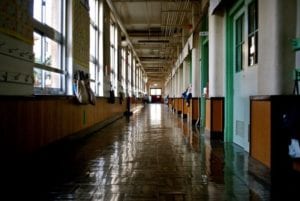The North Ayrshire Council is already suspending a new face-based payments system in response to pressure from British authorities and privacy advocates. The system went live last week at nine schools in North Ayrshire, giving students the ability to pay for school lunches with only a facial recognition scan.

The North Ayrshire facial recognition system was intended to speed up the lunch line, which had previously allowed students to pay with either a PIN or with fingerprint recognition. Developed by CRB Cunninghams, the solution is fully contactless, and can purportedly identify students in as little as five seconds even while they are wearing masks.
However, the privacy concerns for children are much higher than they are for adults, at least insofar as children cannot consent to the use of the technology. The North Ayrshire Council indicated that the vast majority of the district’s parents had opted in on behalf of the students, but the system still drew the attention of British regulators. The Information Commissioner’s Office announced that it would be opening an inquiry into the system only days after it debuted, while biometrics and surveillance camera commissioner Fraser Sampson suggested that schools should prioritize less intrusive identification methods. Privacy watchdogs also criticized the Council for trying to normalize the biometric data collection of minors.
The backlash has now prompted the North Ayrshire Council to temporarily halt its use of facial recognition, and to delay the further rollout of the program. In the meantime, some of the other schools that were considering the technology have started to get cold feet. The Great Academy Ashton in Ashton-under-Lyne has completely abandoned its plans for a face-based payments system, while another school in England is reportedly considering similar action.
Privacy advocates celebrated the Council’s decision. The controversy echoes recent incidents in New York and Sweden, where school districts that have installed facial recognition systems have faced similar pushback from legislators and the general public.
Source: BBC
–
October 26, 2021 – by Eric Weiss








Follow Us